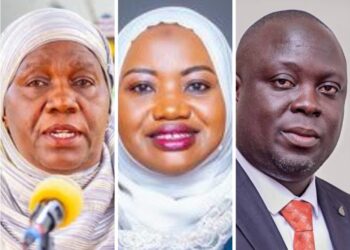Access to clean energy is not merely an aspiration for Uganda but a necessity to drive economic growth, improve livelihoods, and combat environmental degradation. The launch of the Price Subsidy Program for Clean Energy Technologies by the Uganda Energy Credit Capitalisation Company (UECCC) marks a significant step toward achieving this critical objective. This initiative comes at a time when the world is increasingly focused on renewable energy solutions, and Uganda is positioning itself as a regional leader in adopting sustainable energy practices.
The program, reinforced by a Results-Based Financing framework, seeks to eliminate the affordability barriers that have long hindered the adoption of clean energy technologies.
By providing subsidies for off-grid solar systems, clean cooking solutions, and productive use technologies, the initiative aims to transform the lives of millions of Ugandans, particularly those in rural and underserved areas like my own village in Iganga. Looking at the idea, the approach aligns perfectly with Uganda’s Vision 2040 and its commitment to the United Nations Sustainable Development Goals, particularly Goal 7, which emphasises affordable and clean energy for all.
Among the key offerings under this program are gas cookers, energy-efficient bulbs, and modern cooking appliances that cater to the specific needs of Ugandan households.
Subsidised gas cookers, for instance, are being made available at significantly reduced prices, allowing more families to transition from traditional biomass cooking methods to cleaner and safer alternatives and since I am one person who hates eating late during Christmas and many other festive season days, I decided to get Maama Woira a discounted modern cooking appliance so that I preach clean energy when my home people are using it.
Energy-efficient bulbs, another key component, aim to address the issue of high electricity bills while providing better lighting for homes and businesses. These products are offered at prices designed to accommodate low-income households, ensuring that even the most vulnerable communities can afford them.
The program’s primary beneficiaries include rural households, low-income earners, and communities in off-grid areas who lack access to reliable energy sources. Refugees and their host communities have also been prioritised, a commendable move that underscores Uganda’s commitment to inclusive development. Since this program is not for everyone including the planned city people, for eligibility, beneficiaries are required to demonstrate proof of residence and income, with specific criteria tailored to ensure the subsidies reach those most in need. This targeted approach ensures the program addresses energy poverty effectively without being misused.
Energy poverty has been a persistent challenge in our country. Many households still rely on harmful and inefficient energy sources such as kerosene lamps and traditional biomass cookstoves. These not only worsen environmental challenges like deforestation but also pose serious health risks, especially to women and children. The Price Subsidy Program’s focus on cleaner alternatives such as solar-powered lighting and modern cooking technologies is therefore not only environmentally prudent but also a public health imperative.
What makes this program particularly commendable is its inclusivity. Refugees and their host communities, who often face the harshest economic conditions, are eligible for the subsidies. This demonstrates Uganda’s leadership in creating equitable energy access and highlights its progressive approach to integrating refugee populations into national development frameworks.
Moreover, the program’s emphasis on productive use technologies such as irrigation pumps and grain milling equipment, has the potential to unlock economic opportunities for small businesses and farmers, further driving rural development.
The success of this initiative, however, will be centered on effective implementation. Transparency, accountability, and robust monitoring systems will be vital to ensure that the subsidies reach their intended beneficiaries. The UECCC’s innovative use of digital platforms for real-time tracking of sales and subsidy claims is a promising step in this direction.
I also think that partnerships with energy service companies and financial institutions must be continuously strengthened to expand the program’s reach and impact so that so many other Ugandans benefit from the program because we also have so many poor people in the city so I think this program should also be brought to the city center.
The private sector holds a vital key in Uganda’s journey toward clean energy. By stepping up investments in the production and distribution of renewable energy technologies, businesses can help bridge the gap between demand and supply while unlocking economic opportunities. These efforts have real-life impacts: a family in a rural village gaining access to an affordable solar kit for the first time, or a small business owner reducing operational costs by switching to renewable energy.
This milestone is a reminder that the road to universal access to clean energy is still long. While this program has laid an admirable foundation, continuous effort and partnerships are crucial for lasting change.
Imagine a future where every household, from the city outskirts of Kampala to the remote hills of Karamoja, can afford and access clean energy. Uganda has already shown its ability to innovate and lead in renewable energy adoption. With this program, the country takes another step toward a more sustainable and inclusive future.
Clean energy is more than technology; it’s about improving lives, protecting the environment, and creating opportunities. It’s the child in Gulu reading under solar light instead of a kerosene lamp. It’s the farmer in Nawampiti, Kaliro district using solar irrigation to grow food in unpredictable weather, it this old woman in the village using a gas cooker to prepare katogo without facing the effects of the wood gas. The Price Subsidy Program embodies this vision. For it to succeed, we need all hands-on deck, government, businesses, and civil society working together to turn the dream of a brighter, cleaner, and more equitable Uganda into reality.
Michael Woira
Patriotic Uganda
Do you have a story in your community or an opinion to share with us: Email us at editorial@watchdoguganda.com













